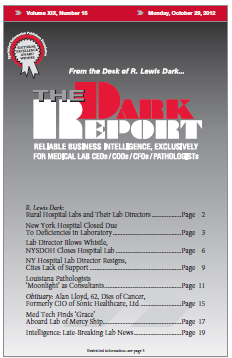CEO SUMMARY: One intrepid medical technologist has spent almost two decades in volunteer service working in the clinical laboratories of hospital ships operated by Mercy Ships International. As the world’s largest hospital ship, the Africa Mercy contains six operating rooms, a 78-bed ICU and patient ward, along with a clinical lab that is equipped with …
Med Tech Finds “Grace” Aboard Lab of Mercy Ship Read More »
To access this post, you must purchase The Dark Report.


